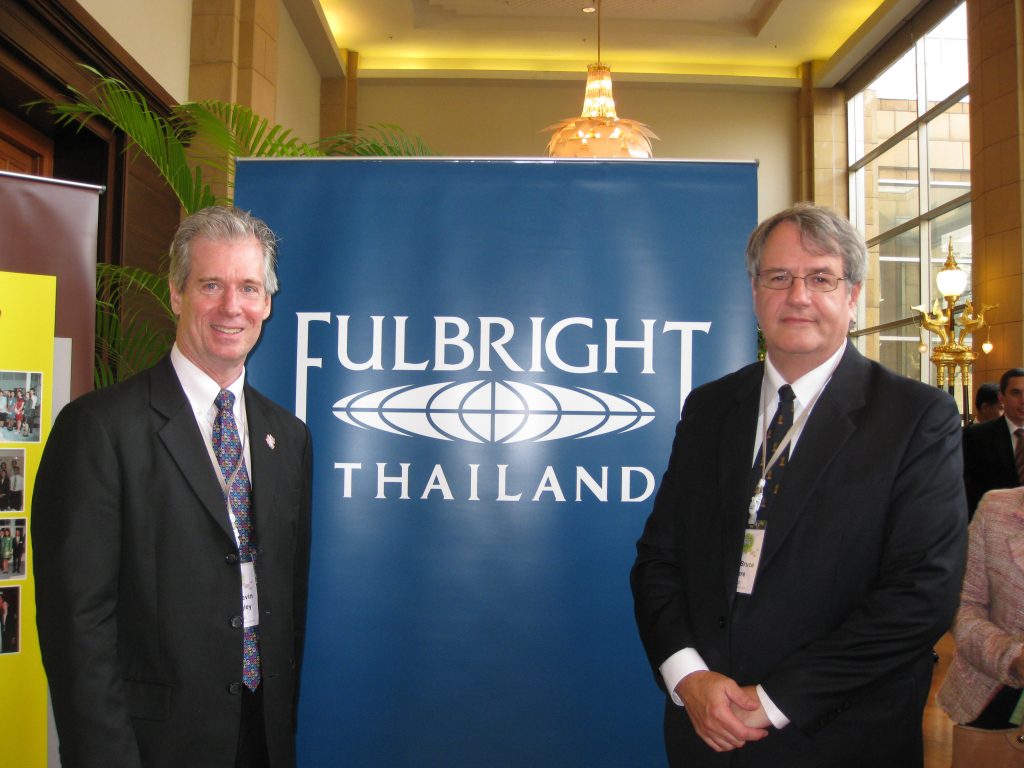Fulbright Chronicles, Volume 1, Number 1 (2022)
Authors
Kevin F F Quigley and Bruce B Svare
Fulbright alumni know that “seeing” the world is just the first step. The enduring relationships, empathy and understanding that develop have been the legacy of the Fulbright Program for over 75 years.
Today, we face great challenges in our world. We are called upon to work even harder to live up to Senator Fulbright’s words: “The essence of intercultural education is the acquisition of empathy—the ability to see the world as others see it.”
It is a fitting time in the history of the Fulbright program to honor these words by shining the light on the dedicated work of Fulbrighters. With this issue, we are launching the Fulbright Chronicles as an online, peer-reviewed journal by and for Fulbrighters and for future Fulbright award recipients.
Launching this journal has been a wonderfully collaborative effort. We are fortunate to be joined by a talented and dedicated editorial team of Fulbright alumni spanning the globe from Argentina to Australia to Nigeria to Italy and the United States, and whose professional backgrounds cover most of the six Fulbright program areas. (You can learn more about the editorial team here: www.fulbright-chronicles.com).
This issue includes a variety of remarkable Fulbright experiences and lives that they helped shape. It begins with an eloquent essay on the importance of the Fulbright Program by former Slovenian Prime Minister Dr. Miro Cerar, and it includes reflection by Pulitzer prize-winning author Jane Smiley on how her Fulbright experience in Iceland shifted her career; Executive Director of Australia’s Fulbright Commission James Arvanitakis shares his Fulbright-generated research on the rise of discontent that is impacting politics in the U.S and elsewhere; art historian Barbara Paca discusses the ways in which her Fulbright experience in Ireland led to the establishment of an innovative museum on the Chesapeake Bay addressing issues of race and environmental justice; MacArthur Fellow Derek Peterson describes how his Fulbright led to his life-long research understanding the political, intellectual, religious and racial history of Kenya; and educator Celeste Brody discusses her Fulbright work on faculty development and the establishment of student centered teaching practices in Thailand.
We very much look forward to hearing from you and are confident that with your help, we all will “see the world” more clearly.
The Fulbright Chronicles only can succeed with the participation of our community. We invite that participation in a variety of ways. You can contribute a commentary on any topic of interest or an article that is more explicitly tied to research. We have included Author Guidelines on our website. We also welcome letters to the editors, commenting on what you have read here or what you would like to see in future issues.
We very much look forward to hearing from you and are confident that with your help, we all will “see the world” more clearly. In that way, the Fulbright Chronicles can help see what steps are needed to shape the more understanding world that the Fulbright Program seeks to achieve.

